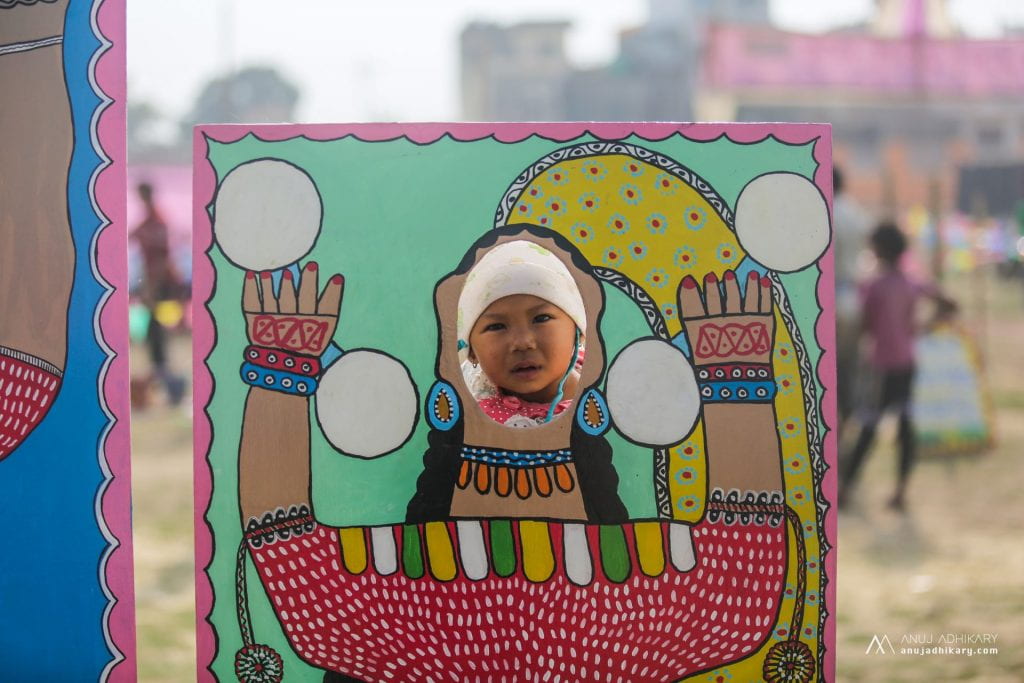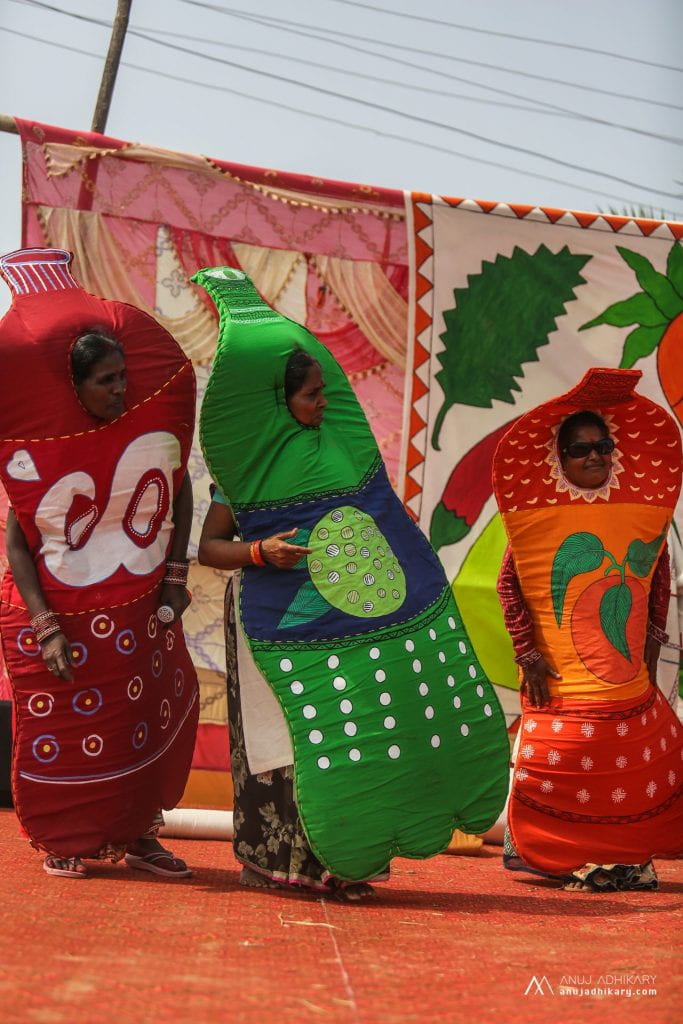Fun and games can prevent diabetes
By Briony Fleming, on 14 May 2019
This Blog has been written by Joanna Morrison, Senior Research Associate in the Institute for Global Health, and this project has taken place with funding from The Wellcome Trust, and additional support from a UCL Culture Beacon Bursary award.
On February 22nd and 23rd the dusty public park of Bara Bigha in Janakpur was transformed into a themed fun fair by artists from the Janakpur Women’s Development Centre (JWDC). The theme of the fun fair, or ‘Mela’, was prevention and control of type 2 diabetes.
Type 2 diabetes affects an estimated 96 million people in South East Asia (Cousins, 2017), and can be largely prevented or delayed through a healthy diet, regular physical activity, maintaining a normal body weight and avoiding tobacco. But awareness about diabetes is very low, particularly in Nepal’s rural areas. A local doctor in the Janakpur Zonal Hospital told artists: ”People are not aware about what causes diabetes, what are its complications… they think diabetes is a fatal disease and worry that they cannot eat any of the things they enjoy… but you can eat everything, just you have to control your portions, and eat a balanced diet.”
JWDC artists also interviewed their neighbours and friends about diabetes. While sitting on a wooden bed outside her bamboo and mud house, Mrs Anita Sah*, told us that her diabetes was very difficult to manage as she could not afford the medicine: “I go for checkups in Janakpur. The treatment is very expensive. For one visit, it costs me around 3000-4000 rupees. Sometimes it gets difficult to manage money, and I have to take a loan.” Diabetes drugs are on the free government essential drug list, but they can only be supplied by trained health workers, of which there are very few. The WHO package of essential non-communicable disease interventions is being rolled out slowly by the Government of Nepal, but in the meantime many diabetes patients are experiencing great financial hardship.
Artists also found that there was social stigma around diabetes, Mrs Manju Yadav* was afraid to feed her grandson with her hands in case she passed the disease to him, and a group of young non-diabetic women confirmed that this misconception was widespread: “When someone has diabetes, we should not go near them because the disease can be transferred from them to you.” Some of the artists themselves had family members with diabetes and had experienced social stigma and financial hardship and they were keen to change attitudes.
Using traditional Mithila art, artists made a drama where artists dressed in costumes as giant Coke, Fanta and Sprite bottles which tempt the protagonist to eat unhealthily, smoke giant cigarettes and drink alcohol. His belly grows and giant needles and tablets come to treat the development of diabetes. Only when he begins to eat vegetables and start being physically active is he able to lift the colourful dumbbells again over his head. The drama travelled to 17 villages around Janakpur and opened the stage show at the Mela. Artists passed the colourful dumbbells through the crowd demonstrating that exercise is for everyone, whatever your gender or age.
The crowd was then blasted into Zumba action by Janakpur’s Beats and Step Dance school, and the artists showed that wearing a sari is no impediment to dancing to good health.
In another corner of Bara Bigha, people could listen to the stories of those who are managing their diabetes through a photo-voice exhibit, and film shows. For those with a good aim, winning a mithila printed vegetable bag was the prize for throwing vegetable bean bags into the mouth of an unhealthy man or woman, or knocking down unhealthy sweets and snacks with bean bags. An immersion tunnel overwhelmed participants who were attacked by giant ice-creams, cigarettes and sweets, emerging to be faced with hordes of children wearing vegetable face-paints, dressed-up as mini carrots.
It wasn’t all fun and games though, as we provided over 800 people with free random blood glucose tests, and counselling on diabetes risk factors and a nutritious diet. One of the artists, Mrs Saraswoti Sharma*, found out that she may have diabetes. Understandably upset, she was surrounded by artist friends, who reminded her that it wasn’t the death sentence that they had previously thought. She agreed that she knew how to control her diet, and she would keep up the daily exercise they had been doing at the JWDC, and she felt able to beat diabetes.
*names changed to protect their identity.
Acknowledgements: The mela and associated events were funded by the Wellcome Trust and implemented by the Janakpur Women’s Development Centre in collaboration with the University College London Institute for Global Health, Herd International, Media for Development, and the Nepal Dietician Association. Photos are all credit to Anuj Adhikary.
For further information please contact:
Dr Joanna Morrison (UCL) 9851002502 joanna.morrison@ucl.ac.uk
Mr Satish Sah (JWDC) satish2015@teachfornepal.org
Ms Abriti Arjyal (Herd International) abriti.arjyal@herdint.com
One Response to “Fun and games can prevent diabetes”
- 1
 Close
Close









[…] FUN AND GAMES CAN PREVENT DIABETES […]